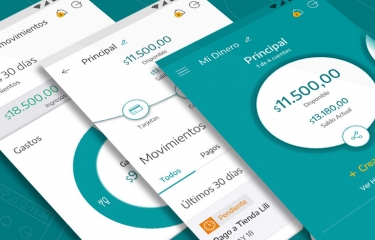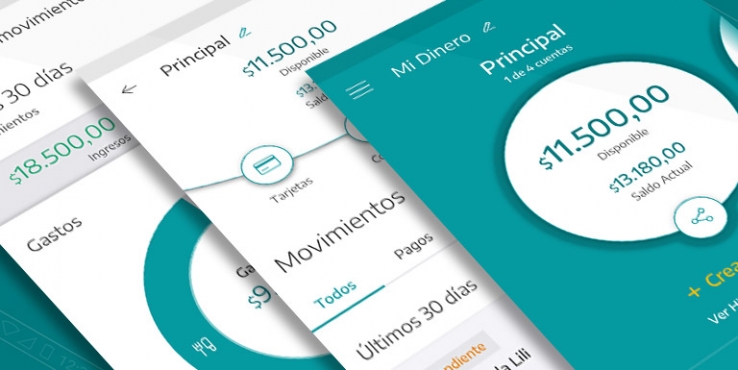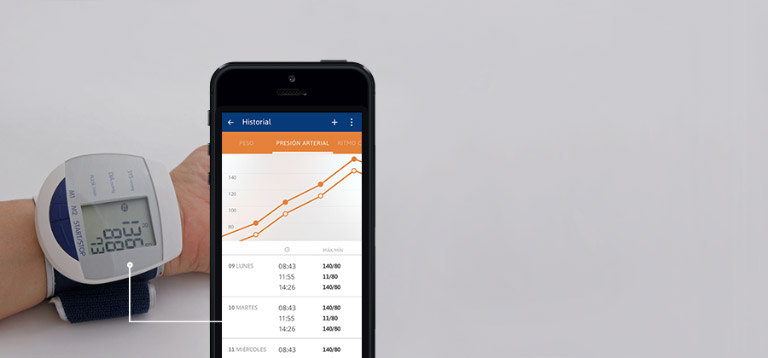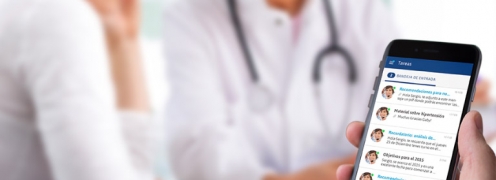

A Fintech start-up with social conscience, to realize the promise of greater community well-being and development
Industries:
To think of chronic illness as mainly a physical condition is to ignore a singular emotional effect, not only on the patient but on his and her family and friends: the loss of quality in one’s life.
Working with OSDE –one of Argentina’s largest private healthcare providers– on its Proteger program, Giro54 had the chance to change thinking and behavior on an unprecedented, industry-wide level, by creating tools that could help up to 300,000 members and their families feel empowerment over their treatment, from anywhere, at any time.
When Roberto developed Type-2 Diabetes, he was already in his mid 60s. Although his doctor put him on Metformin, Insulin and a strict diet, Roberto’s gregarious lifestyle and work –helping out at his son’s restaurant– made it hard, if not impossible, for him to monitor his diet and keep track of his Glucose level and blood pressure.
Uncontrolled diabetes is a leading cause of blindness, three times as likely to cause kidney failure or a heart attack, and up to four times as likely to cause a stroke. With no comprehensive preventative-care solutions, the disease is becoming a huge financial burden on society. The physical, financial and emotional burden of diabetes is carried by the entire family.
The key constraint to helping patients such as Roberto avoid the complications brought on by their disease is communication: people only make contact with their healthcare provider at the moment of absolute necessity.

For a patient suffering from chronic illness, whether it’s Diabetes or another illness such as Chronic Obstructive Pulmonary Disease (COPD), Hypertension and Heart Disease, the barrier to communication is emotional: any contact associated with his or her illness is a point of pain and source of stress. For providers, the barrier has been accessibility— until recently, there was no way to offer customized assistance to individual users on a daily basis.
OSDE knew it needed to harness design and technology to solve this key problem at its root. But given the intense personalization and scale of the project –targeting 7,500 individual members by early 2015– tailoring solutions can become a costly, time-consuming, and unreliable process. OSDE turned to Giro54 for our unique capability: turning complex processes into elegant and simple experiences that people of all ages can use effortlessly, helping them develop healthy habits in their daily routines in a natural way.
We worked with OSDE’s team of doctors, nurses and psychologists to bring the personalized experience each patient gets from a dedicated professional into the digital realm, expanding the reach of their phone-based call center to a web portal and a mobile app. On the technical side, we collaborated with VitalHealth, a dutch software provider for the healthcare industry.
We gathered real world information from patient interviews, usability tests and system analytics to understand and tackle the major pain-points that were holding the program back.
During the immersive process with patients, healthcare professionals and the OSDE team, we ran user research and anthropological interviews to understand their needs in depth. We were able to identify three key aspects: the need for quick response, empowerment over their treatment, and access to up-to-date medical information from either a mobile device or a desktop computer.

In order to change user behavior from crisis-driven to prevention-focused, and from rare to consistent, the patient’s point of pain had to be replaced with an entirely new experience and unprecedented payoff: peace of mind.
With those emotional aspects as a reference point, we designed a web portal and a mobile application which provides both a supportive and a proactive experience. The app gives patients control over their treatment. Through a set of simple interactions and an intuitive interface, users can input and track their health readings, set up and follow up their own health-related goals, access their medical records and have access to a direct channel of communication with a health care provider.
The cycle of avoidance-until-crisis is the key problem for chronically ill patients and their providers around the world. While design thinking is being applied to solve many other urgent issues in modern society, there are few situations where tools for consistent management can have as much benefit, and the lack of such tools can incur as great a cost, as in the health-crisis management problem. We are grateful to participate in this emerging intersection of medicine and information technology, and proud to be contributing our capabilities to a critical aspect of people’s everyday lives.
Would you like to know more about our projects and services?
Contact us